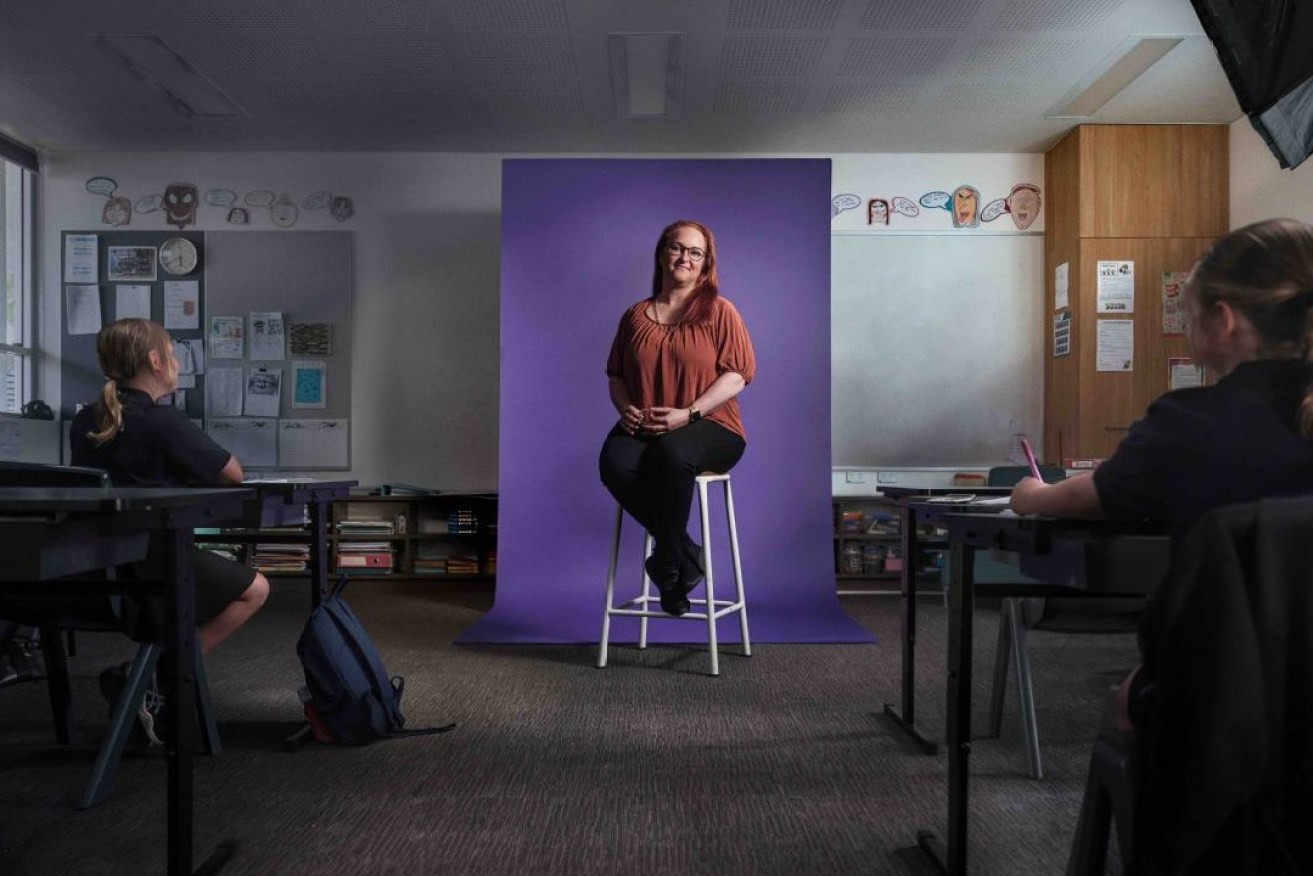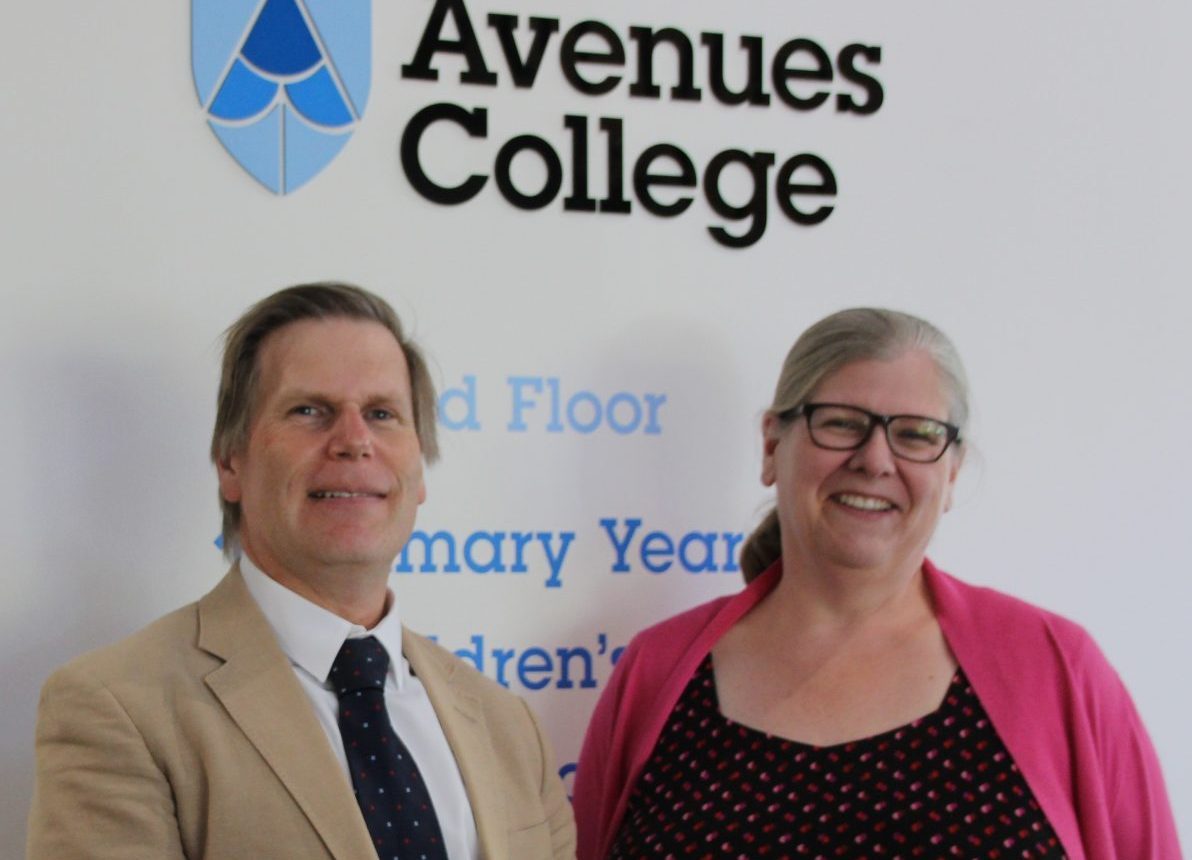
Breaking down barriers to autism at work
Ongoing misunderstandings about people with autism mean some, like teacher Rebecca Jessop, are hesitant to share their real selves while job hunting or at work.

In her first year of teaching, Rebecca Jessop used her lived experience to support an Autistic student.
At that stage, Jessop said, she herself was an Autistic person ‘masking’ to fit in and worried that any disclosure would lose her work due to discrimination.
It impacted which teaching roles she went for, as she limited herself exclusively to temporary relief teaching (TRT).
“Autistic friends who were working for advocacy organisations suggested I apply for [part-time or full-time] roles, but I kept declining the opportunity because it meant publicly declaring my autism,” Jessop said.
“Relief teachers don’t actually apply or interview for work in the traditional ways; we register on an app and take up work at various sites as it is offered.”
It took a year of TRT at Avenues College in Adelaide’s inner north-east before she told the primary school principal, Jenny Conn.
“She thanked me for trusting her with that information and reassured me that I was a valued part of the teaching team,” Jessop said.
“It was such a relief to not have to hide or mask out of fear anymore, and the conversation has led to other positive conversations about autism over the past couple of years.”
Jessop, like many within the Autistic community, prefers to use identity first language, referring to herself as “Autistic” or “neurodivergent”.
She said person first language – that is, saying someone has autism, lives with autism or is on the autism spectrum – suggests it is “something that can be separate from us, that we should be embarrassed about, or worse, a disease that needs to be cured”.
“I, and others, consider being Autistic to be an integral part of our identity.”
Diagnosed halfway through her teaching degree, at the age of 39, Jessop said her career choice makes sense to her.
“Many Autistics are either attracted to STEM or care-taking roles, like nursing or teaching, so I’m sure being Autistic influenced my choice.
“Initially I wanted to become a teacher to help kids thrive authentically through understanding, and because my child had some struggles – it was the teachers who understood and supported them who made all the difference.”
In Jessop’s early placements at Avenues College, what stood out to assistant principal – head of primary Conn was her style of communication.
“One of her strengths is that she is forthright and open about everything,” Conn said.
“Regardless of what happens, good, bad or otherwise – because that’s normal life in a classroom – she will always communicate that with us.
“[It’s] a very good thing. I think that we achieve more with that sort of an attitude.”
The school’s principal, Hamish McDonald, said the merit-based hiring process is inclusive of all skills and transferable skills, where everyone has equal opportunity to be considered on their individual merit.
“When Rebecca came on board, she hadn’t actually advised she was on the autism spectrum,” he said. “We didn’t treat her any differently.”
Once aware, the school worked together with Jessop to provide her with the support she needed – including some extra time away from school.
“We support her in that, but we certainly don’t stop employing her because of it,” said Conn.
The two describe Jessop as extremely dedicated, enthusiastic and highly professional.
“When Rebecca has had short term contracts, she has been well on top of all everything and was always keen to affirm that she’s on the right track,” Conn said.
Their advice to employers for being more inclusive in hiring is to understand the strengths of each person and to talk with the candidate about what help or allowances they may need.
“If we’ve got open lines of communication for better understanding, then we can meet people’s needs in a more effective way,” Conn said.
They are unaware of any other Autistic teachers on staff, however more than two dozen students have diagnosed autism.
Jessop said she is “openly proud of being Autistic/neurodivergent”, something students may not have seen or heard of in an adult.
“When the Autistic/neurodivergent kids struggle, I can honestly say to them, ‘I find some things like this hard too’ and suggest we find a way to work through it together,” she said.
She has clearly found her calling in teaching.
“The times when I connect with a child who has been reluctant to engage, or when they’re learning a new concept and there’s that “light bulb” moment – it’s exciting and reaffirms why I became a teacher,” she said.
Conn said Jessop stands out for her absolute joy and enthusiasm for her work.
“And I think that’s a bit infectious,” Conn said.
“She’s really quite joyful to be around, especially towards the end of the term when we’re all running out of steam.”
That “bubbly personality”, principal McDonald said, was an asset in building relationships and engaging students in learning and in wanting to attend school.
“In education, strong relationships are really important.”

Avenues College principal Hamish McDonald and assistant principal – head of primary Jenny Conn
This is central to Avenues College’s ethos – McDonald said it aims to be a “place of belonging” where people feel at home and supported.
One of the reasons Jessop may be so well accepted and valued at Avenues College is that it has a conscious emphasis on being inclusive to all in the community.
Avenues College is a public school for students from birth to year 12 (B-12), beginning with outreach programs for expecting and new parents, and it holds playgroups during school terms catering for bilingual, migrant and Indigenous families.
In addition, it is a Centre for Deaf Education, one of only two secondary school sites in the state offering a specialised program for students with significant hearing loss, enabling them to participate in mainstream classes.
It is also the school of the Wiltja Boarding program, directly governed by Anangu communities, that sees Indigenous students from remote learning communities of the APY Lands and Northern Territory move to Adelaide for schooling from year 5.

“What we’ve learned as a school community is that these different groups enrich our community,” McDonald said.
He is a strong supporter for a change in attitudes to autism.
“We hope for our students who have been identified as being on the autism spectrum, going forward that stigma will not be there against them because they’re different.
“It’s just they are who they are and they have something positive to contribute to society.”
Every individual’s lived experience with autism is different and varies from one to another. Autistic people are often subject to a lack of understanding and acceptance, and can have an unnecessary disadvantage in applying for and interviewing for jobs that belies their skills and talents.
Jessop’s resume now indicates that she is Autistic. Between TRT jobs she works with advocacy organisations. She has also participated in government consultative groups for the Autism Strategy and the Autism Works campaign.
In recent job interviews, her autism and support needs were discussed just like the routine questions about previous experience, strengths and interests.
“I think that when a company values diversity, including Autistic employees, it is possible to sense that in the culture and it is also reflected in the staff,” Jessop said.
Many of the largest companies in Australia understand the value of neurodiversity in the workforce and actively hire neurodivergent and Autistic people. These include IBM Australia, ANZ, NAB, JP Morgan and Chase, PricewaterhouseCoopers, SAP, Australian Tax Office and Telstra.
“The Autistic community is large and supportive of each other, so in many instances we share when companies are good to work for,” Jessop said.
“They develop a reputation – which improves their diversity, creating a self-fulfilling loop.”




